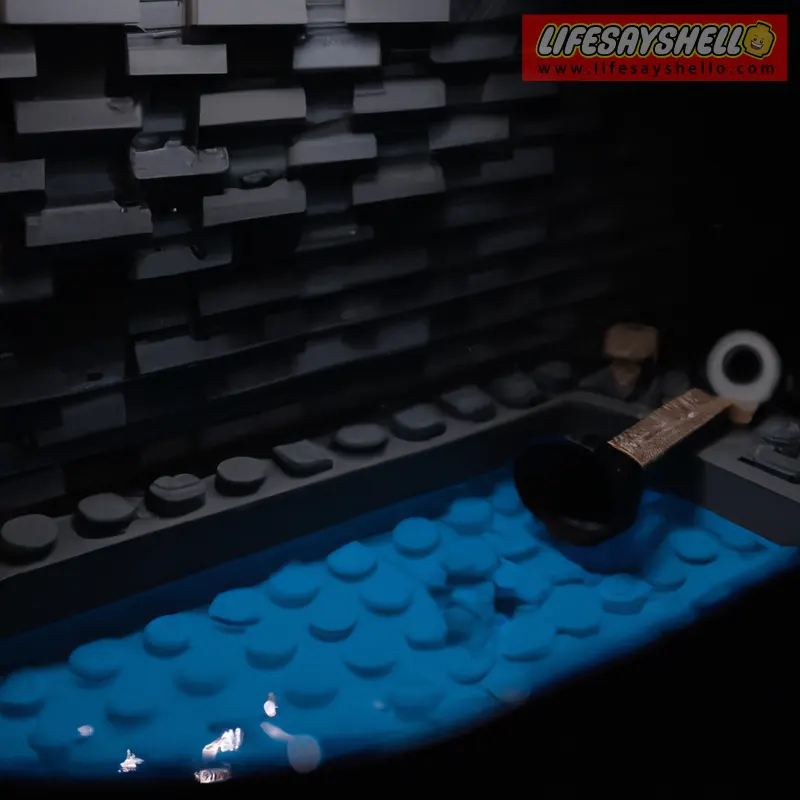Water in Basement: Who to Call and How to Deal with the Problem - A Comprehensive Guide

Dealing with water in your basement can be a stressful and overwhelming experience, but knowing who to call and how to address the issue can make all the difference in preventing further damage and restoring your home to its former glory.
Introduction
Water in the basement is a common issue faced by many homeowners, and it can be caused by a variety of factors such as leaks, floods, and groundwater intrusion. Addressing this problem promptly is crucial to prevent further damage to your home's structure, as well as to protect your family's health from potential mold growth and other hazards. In this comprehensive guide, we'll discuss how to identify the source of water in your basement, who to call for help, and preventive measures to avoid future water intrusion. So, let's dive in!
Identifying the Source of Water
Before you can effectively deal with water in your basement, it's important to identify the source of the problem. There are several potential causes of basement water intrusion, and understanding where the water is coming from will help you determine the best course of action to address the issue.
Leaks: Leaks in your home's plumbing system, such as pipes, water heaters, and washing machines, can lead to water pooling in your basement. Look for signs of leaks, such as damp spots on walls, ceilings, or floors, as well as any visible dripping water.
Floods: Heavy rainfall or melting snow can cause flooding in your basement, especially if your home is located in a low-lying area or has poor drainage systems. Check for signs of flooding, like water stains on walls and floors, and ensure that your gutters and downspouts are working properly to direct water away from your home's foundation.
Groundwater: Groundwater can seep into your basement through cracks and gaps in your home's foundation, especially during periods of high water table. Look for signs of groundwater intrusion, such as damp or wet spots on basement walls and floors, and consider installing a sump pump to help remove excess water.
Who to Call for Help
Once you've identified the source of water in your basement, it's time to call in the professionals. Depending on the cause of the problem and the extent of the damage, you may need to contact one or more of the following experts:
Plumbers: If your basement water issue is due to leaks or broken pipes, a plumber can help you fix the problem and prevent further water damage. Plumbers can also assist with installing sump pumps and other drainage systems to help keep your basement dry in the future.
Waterproofing Experts: If your basement is prone to water intrusion due to groundwater or flooding, a waterproofing expert can help you seal your basement and implement other measures to prevent future water problems. Waterproofing professionals can assess your home's foundation, identify potential weak spots, and recommend the best solutions to keep your basement dry and protected.
Restoration Companies: In cases where water damage has already occurred, a restoration company can help you clean up the mess, dry out your basement, and address any mold or mildew issues that may have developed. Restoration professionals have the necessary equipment and expertise to safely and effectively restore your basement to its pre-damage state.
Insurance Companies: If your basement water issue has resulted in significant damage, you may need to file a claim with your insurance company to help cover the costs of repairs and restoration. Be sure to document the damage with photos and keep detailed records of any expenses related to the issue, as this will help support your claim and ensure that you receive the financial assistance you need.
Preventive Measures to Avoid Water in Basement
To keep your basement dry and avoid future water problems, consider implementing the following preventive measures:
Regular Maintenance of Plumbing Systems: Regularly inspect your home's plumbing system for signs of leaks or damage, and address any issues as soon as possible. This includes checking pipes, water heaters, and appliances like washing machines and dishwashers. Regular maintenance can help prevent small leaks from turning into larger, more costly problems.
Installing a Sump Pump and Proper Drainage Systems: A sump pump can help remove excess water from your basement and prevent flooding during periods of heavy rainfall or high groundwater levels. Additionally, ensure that your home has proper drainage systems, such as gutters and downspouts, to direct water away from your foundation and prevent water intrusion.
Sealing Cracks and Gaps in the Foundation: Inspect your home's foundation for cracks and gaps, and seal them with a waterproofing compound to prevent groundwater from seeping into your basement. This can be a DIY project for minor cracks, or you may need to hire a professional for larger, more serious foundation issues.
Ensuring Proper Grading and Landscaping Around the Home: Make sure that the ground around your home slopes away from the foundation, as this will help direct water away from your basement and prevent water intrusion. Additionally, consider installing French drains or other landscaping features to further improve drainage and protect your home from water damage.
Conclusion
Dealing with water in your basement can be a daunting task, but with the right knowledge and resources, you can effectively address the issue and prevent further damage to your home. By identifying the source of water, calling in the appropriate professionals, and implementing preventive measures, you can keep your basement dry and protect your home's value and your family's health. Don't wait until it's too late - take action now and ensure a dry, safe, and comfortable living space for years to come.




Comments